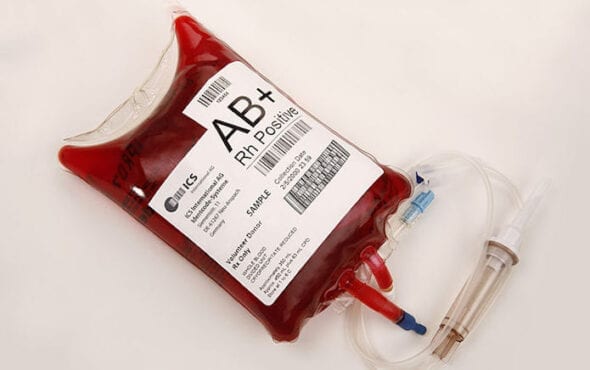
More gay and bisexual men will be able to donate blood than ever before thanks to a historic new rule change in England, Scotland and Wales.
From Monday 14 June, all donors will be asked the same questions about their sexual behaviours in a gender-neutral manner.
Now, people can donate if they have had the same sexual partner for the last three months, meaning gay and bisexual men in sexually active and monogamous relationships can donate for the first time.
The policy was changed in 2011 to allow gay and bisexual men who have not had sex in the past 12 months to donate. In 2017, it was revised again to permit donations by men who have not had sex in the past three months, which excluded sexually active men who were in monogamous relationships.
This historic change follows years of pressure from LGBTQ+ campaigners, who argued that the policy did not reflect current risk levels.
Ethan Spibey, founder of FreedomToDonate, said: “After many years of campaigning, and working with the UK’s blood services, we are delighted that this change is now coming into effect.
“Thanks to the work of dedicated individuals and charities alongside NHSBT, the UK now has one of the world’s most progressive blood donation policies and more people than ever will be able to safely donate blood.
“The work of the FAIR steering group shows that simply being a man who has sex with men is not a good enough reason to exclude someone from donating blood. For me this process started after I vowed to repay the donor who saved my grandfather’s life but was prohibited from donating due to my sexuality.
“But this is more than just about a fairer and more inclusive system, it’s about those who rely on blood, and giving blood literally saves lives. I can’t wait to finally repay that first pint.
“I would encourage anyone who is able to safely donate blood to register to do so.”
The new rule means that England, Scotland and Wales now have one of the most progressive policies on blood donation in the world.
Ella Poppitt, Chief Nurse for Blood Donation at NHS Blood and Transplant, said the change is about “switching around how we access the risk of exposure to a sexual infection, so it is more tailored to the individual.”
She added: “We screen all donations for evidence of significant infections, which goes hand-in-hand with donor selection to maintain the safety of blood sent to hospitals.
“All donors will now be asked about sexual behaviours which might have increased their risk of infection, particularly recently acquired infections. This means some donors might not be eligible on the day but may be in the future.”
Donors who have participated in anal sex with a new or multiple partners in the past three months will still have to wait three months to donate, regardless of their gender.
In Northern Ireland, the three-month deferral period will remain in place until September.
Although the changes were welcomed by LGBTQ+ charities including the National Aids Trust, Stonewall and Terrence Higgins Trust, the latter noted how the government have kept a “discriminatory restriction” in England that will negatively impact donating blood within Black communities.
The charity said the restriction relates to a three-month deferral period for anyone who has a “partner who has, or you think may have been, sexually active in parts of the world where HIV/Aids is very common” and references “most countries in Africa”.
Ian Green, Chief Executive at Terrence Higgins Trust, said: “It’s great news that far more gay and bisexual men can safely donate blood from today.
“But the excitement of that announcement is significantly dampened by another discriminatory question being retained by Government in the blood donation process in England, which presents a significant barrier to black donors in particular giving blood.
“This is despite it being removed in both Scotland and Wales, and the blood service actively encouraging black communities to donate plasma and blood due to shortages.”
For those who want to become a blood donor, you can register and book an appointment by calling 0300 123 2323, downloading the GiveBloodNHS app, or visiting http://www.blood.co.uk.



